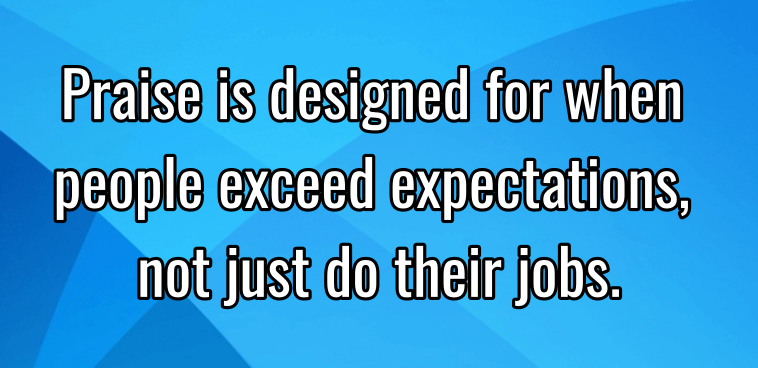Early in my career, I worked for an incredible general manager that taught me a lot of C.R.A.P. — caring, respect, appreciation and praise. He also taught me that giving people C.R.A.P. was at the heart of driving employee loyalty and retention.
He never told me it was about caring, respect, appreciation and praise. He just showed me and, as my mentor, I listened and applied the philosophy. As time went on, I added some other key elements to truly be able to solve employee retention problems in organizations that I worked in. The four elements of C.R.A.P. are simple. I said simple, not easy.
Here they are.
Caring. People know if you care about them or not. They simply do. There is a vibe that is given off if you don’t care. I’m not so sure you can fake it but the good thing is that most leaders do care about their people. They are there for their people when they need them and stand by them when times are tough. They are available to listen and to talk to their people when their people need to talk.
When your people need you, they need you right away. If you put them off in their time of need, the likelihood they will come to you in the future drops off considerably. Make time for them so you can understand their problems and help to solve them. Your people will love you for it.
Respect. Everyone wants it. Everyone deserves it, at least until they show that they are not worthy of that respect. Micromanaging people is one of the greatest signs of your respect for them. It sends the message you don’t trust them or their ability to get the job done. Micromanaging is one of the biggest reasons people quit their job. It is frustrating and, in your heart, you know your boss does not trust you if you are being micromanaged.
Another element of respect is wanting the best for your people. It means you are in it for them; not just you. The best bosses know that if their people grow that they might ultimately leave but they know that it is the right thing do and that their role is to help you succeed.
Appreciation. I have heard the statistic that 50% of the people in the workforce do not feel appreciated. That is a scary statistic. It’s not hard to thank people for the work they do and the results they deliver. Maybe we didn’t lead that way in the past. It is how we have to lead today and into the future.
However. I don’t think it’s a bad thing that things have changed. You can’t get the most out of your people if they never hear when they do things right. With the mantra of continuous improvement, we certainly hear when we need to do things better or have done things wrong. Without appreciation, people get beaten down and don’t want to come to work. A little appreciation goes a long way towards keeping people fired up and energized about what they do. How hard is to say “nice job” when someone gets you that report on time?
Praise. I like to call praise “positive affirmation on steroids.” Praise takes appreciation to the next level. Growing up, praise was not something I received and, frankly, it stunk not getting any! Unfortunately, we went the other way with the millennial generation and gushed praise every time they did anything right. Some of them became praise addicts. They got praised for simply showing up and finishing — even if it was in 12th place.
Praise is designed for when people exceed expectations, not just do their jobs. When someone does a good job, they do need appreciation. When they exceed expectations, they need to hear that is was a big deal, they hit it out of the park and that they made a huge difference to the organization. Is that going to offend some of the average performers? Perhaps, it will but that’s just the way it is. We need people to realize that when they do great things, we will take note of those great things and make a big deal out of it.
This is simple stuff but it is not easy to do for some reason. It takes time and hard work on the part of a leader to give people C.R.A.P. But, if you do it, your people will be loyal, follow you anywhere and want to stay working for you. Giving your people C.R.A.P. will also give you a feeling of accomplishment and the impact on the organization will be something that goes beyond the bottom line. Remember, C.R.A.P. works!
Jeff Kortes is an employee-retention speaker, author and expert by accident. His early career spanned 25 years as an HR professional, trainer, and consultant. His no-nonsense approach is reflected in his C.R.A.P. Leadership System, which instills positive supervisory and managerial behavior while driving results in the organization. He shares expert advice on Twitter @JeffKortes and on his website.
If you enjoyed this article, join SmartBrief’s e-mail list for our daily newsletter on being a better, smarter leader. We also have more than 200 industry-focused newsletters, all free to subscribe.
